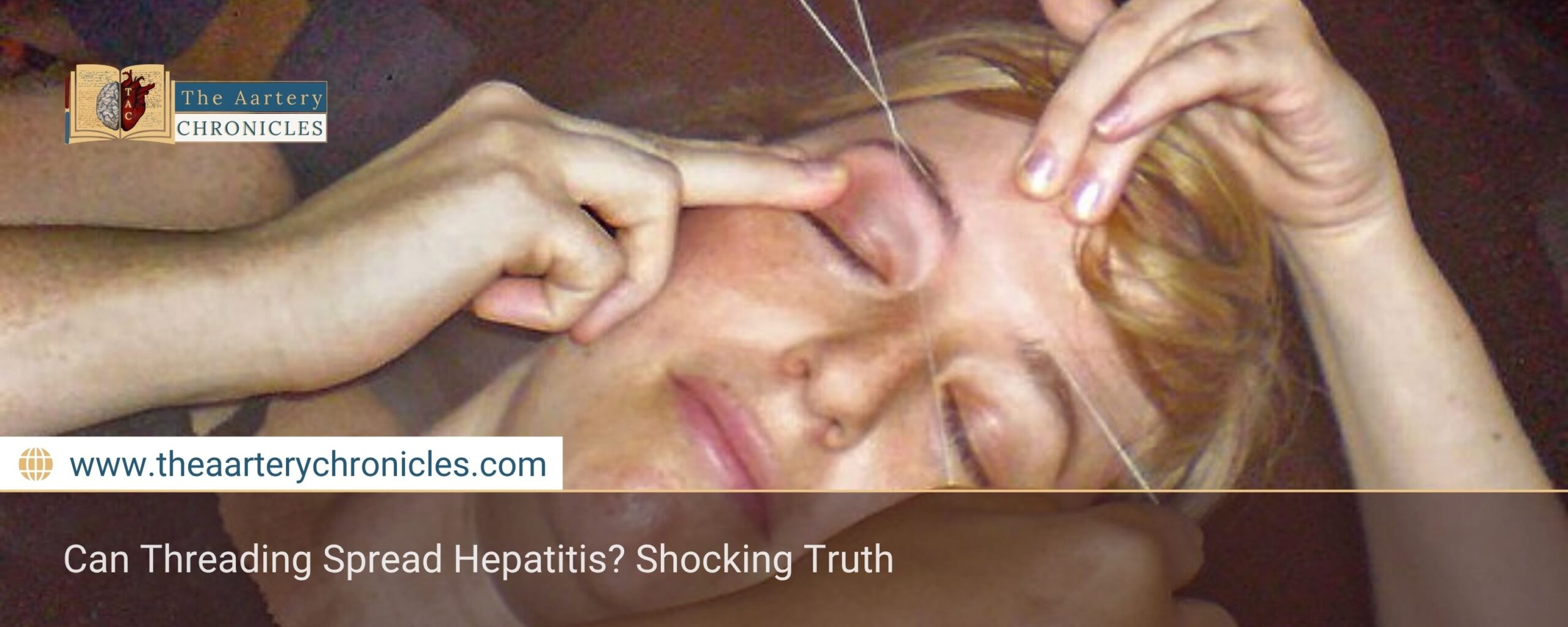

Can Threading Spread Hepatitis? Shocking Truth
Threading and hepatitis risk is a growing concern after a viral video by MBBS Dr Aditij Dhamija raised red flags. He claimed a 28-year-old woman developed liver failure after a regular eyebrow threading session. According to him, reused threading material may have introduced Hepatitis B or C viruses into her bloodstream through micro-cuts, eventually leading to liver damage.
But can a common beauty routine like threading affect your liver?
Understanding Threading and Its Popularity
Threading is a widely used technique for removing facial hair, especially from the eyebrows. It is fast, precise, and generally considered harmless. However, the threading and hepatitis risk become relevant when hygiene is not maintained.
What Happened in the Viral Case?
In his video, Dr Dhamija stated, “Eyebrows banwane gayi thi lekin liver fail karwake aagayi” — meaning, she went to get her eyebrows done but ended up with liver failure. While it’s unclear if he treated the patient, his warning drew attention to the serious consequences of unsanitary beauty practices.
Expert Opinion: Is There a Real Link?
Dr Amit Saraf, Director of Internal Medicine at Jupiter Hospital, Thane, clarified that threading itself does not cause liver failure. However, there is a genuine risk of contracting blood-borne infections, such as Hepatitis B and C, if proper hygiene is not followed.
These viruses can enter the body through:
- Tiny cuts or abrasions caused by threading
- Contaminated thread or tools
- Unwashed hands of the beautician
Once inside the bloodstream, these infections may remain unnoticed for years, silently damaging the liver. If untreated, this can eventually lead to cirrhosis or liver failure.
Why Cleanliness Matters
Threading is only risky when hygiene is ignored. Whether you visit a salon regularly or occasionally, ensure the following practices are followed:
- Always use new, disposable thread
- A beautician must wash their hands thoroughly
- Tools should be properly sterilised
- The skin area should be cleaned before and after threading
- Avoid threading if you have any cuts, wounds, or skin infections
Maintaining these precautions drastically reduces any risk of contracting hepatitis.
What Can You Do as a Consumer?
If you get threading done often:
- Choose a reputable and professional salon
- Don’t hesitate to ask about hygiene protocols
- Watch out for reused threads or tools
- Be mindful of skin irritation, redness, or unusual symptoms after treatment
It’s always better to be cautious when your health is involved, even in beauty treatments.
Conclusion
Threading may seem like a minor beauty routine, but when done under unhygienic conditions, it can open the door to serious health problems like Hepatitis B or C. Over time, such infections can severely damage the liver.
So, while threading is not dangerous on its own, the threading and hepatitis risk becomes real when proper care is not taken. Choose clean, safe environments, and don’t compromise on hygiene for convenience.
Source: Inputs from various media Sources
I’m a pharmacist with a strong background in health sciences. I hold a BSc from Delhi University and a pharmacy degree from PDM University. I write articles and daily health news while interviewing doctors to bring you the latest insights. In my free time, you’ll find me at the gym or lost in a sci-fi novel.
- Priya Bairagi
- Health News and Updates,People Forum
- 7 August 2025
- 15:00








